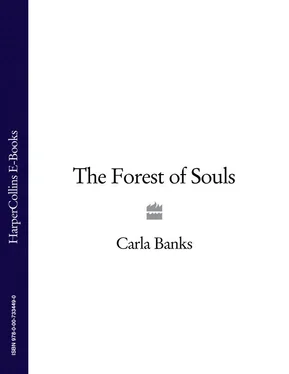But they had been folded for a purpose. They were wrapped round a thin bundle of letters written on fragile paper that was starting to crumble along the edges. She pulled the shade of the desk lamp down, redirecting its beam. It was a cheap one, and the mechanism that was supposed to hold it in place was faulty. The slightest movement, and it lifted its head slowly, like a wading bird that had been disturbed, expanding its neck in alarm, cautious, checking.
She steadied it, then flattened out the first letter. She didn’t recognize the language at first. Russian? She only knew a few words. The script was minute. The first line had to be a salutation: My dear Captain Vienuolos …It seemed to be an acceptance of an invitation. She scanned down to the signature to see if she could work out the identity of the writer, but it was an indecipherable scrawl: P…E …She pulled the lamp closer, and the light flickered. Who are you? Who were you? But there was no answer.
She turned to the diary. There was a label on the front of the book, peeling at the edges, and handwritten in ink that had faded. She could barely make it out. The writing was Russian again and for a moment, she felt discouraged; then she realized that Gennady Litkin must have written it. She carefully transliterated the letters she could read. There were two words and what looked like dates. The last letter was . The first one was M, then A. The third letter–she couldn’t make it out. The ink had faded. The second word…Good, she had what there was. Ma_y _ro__ene__19_2-_944 . It didn’t mean anything.
She opened the book. It was, as Litkin had told her, written in Lithuanian. Even though she’d been studying the language for years, she found the writing hard to decipher, and she remembered that Litkin had said something about making a translation. She looked at the pages of modern notes, suddenly hopeful, but of course, they were in Russian. If Litkin had translated the diary, he had written in his own language. Her Lithuanian should be sufficient. She applied herself to the diary again.
Her head was starting to ache by the time she’d read the first few pages. She checked her watch. It was after seven. She had been here for almost two hours. She hesitated, reluctant to pull herself away, but she wanted to check on Hannah who had been complaining of earache and a sore throat.
She switched on her phone. The beep as it found the network was an intrusion from the 21st century. She keyed in Daniel’s number, but his answering machine took the call. She left a message, feeling relieved that she wouldn’t have to talk to him. ‘It’s Helen. I’m just checking that the kids are okay. I’ll see you on Thursday.’ His usual day for having the children.
She was just getting back to the letters when her phone rang. It was Daniel. ‘I was working out front,’ he said. ‘Any reason why they wouldn’t be okay?’
She didn’t want to row. ‘Hannah felt poorly. And it’s not their usual night…’
‘Right. It isn’t. And you dump Hannah when she’s ill.’
She felt a stab of anxiety. ‘Ill? Has the earache…?’
‘She’s fine, since you’re so worried. They need their routine, Helen. Except when it suits you.’
‘I told you. I had to work. Like you do, you know? When you get a late call?’
‘Oh, sure, old letters and bits of paper. What does your wife do, Mr Kovacs? Oh, she’s got a BA in old shopping lists.’ There was a moment’s silence, then he added. ‘And a PhD in banging the boss.’
Not that again. ‘I’m working,’ she said. ‘Are the kids okay? That’s all I wanted to know.’
‘I told you. They’re fine.’
‘Can I speak to Hannah?’
‘It’s a bad line. She won’t be able to hear you.’
‘I’ll be home by nine. I’ll phone when–’
‘She’ll be in bed.’ His voice was cold.
‘I know. I’d just like to say–’
‘I’ll tell her you called.’ He hung up.
She felt depressed after the call. She and Daniel couldn’t even have a civil conversation about the children. At least it looked as though she wouldn’t have to take time off to go to the doctor’s with Hannah. She wouldn’t have to cancel her meeting with Faith.
She looked at the letters spread out on the desk in front of her, and at the diary. She was about to make a decision. She couldn’t finish reading these here. She’d assumed there would be some kind of copying facilities–the word ‘library’ had conjured up a different image from the one that had confronted her. But no one knew the letters and diary were here, so no one would miss them. She could slip them into her bag and take them away to study at her leisure. It would be okay–she was a bona fide scholar, and she could quietly return them when she’d finished with them. No harm done.
And that was when she heard the sound. It was–it had been–the soft click of the door. ‘Nick?’ she said. There was no response. She paused with the notebook closed over her finger. ‘Hello?’ she said.
Silence whispered back. And in the silence…Was she imagining it?–the faintest sound of breathing, of something moving through the darkness like silk. She stood up, suddenly uneasy. ‘Who’s there?’ She picked up the lamp to lift it higher, to expand the area of light, but the cord pulled tight. She put it down on the desk and moved slowly back down the aisle, the high shelves looming shadows in the darkness.
Now her imagination was playing tricks, making movements in the dark corners of the room, making soft sounds like footsteps behind her. She spun round, looking back along the aisle to the pool of light that marked the place where she had been working. ‘Hello?’ she said again.
The aisle was empty, running back into the shadows. But she’d heard…
Then there was someone behind her and before she could move something snaked round her neck and pulled tight. Her breath was cut off and her hands clawed futilely at the thing that bit deep into her flesh, feeling the slipperiness of blood under her fingers. Blood? My blood? And her legs were starting to tremble as she twisted and struggled for air and there was no one behind her as her flailing arms hit out and the darkness was darker and…
And the circle of light from the desk lamp crept up the wall, illuminating the shelves, up and up until the balance mechanism caught, and the light froze, fixed upwards at the stained and ornate ceiling where a plaster cherub, half its face gone, dispensed grapes from fingerless hands and the stains darkened as the rain penetrated and dripped on to the papers spread out below.
When Faith was a child, she thought that she lived in a forest. Her grandfather’s house, where she spent her childhood, was surrounded by trees, beech and sycamore and chestnut, their heavy leaves shielding it in summer and their branches standing like guardians when the winter stripped them bare. The garden was a playground of green tunnels and damp leaf mould where the sun would sometimes break through and dapple the ground with sudden colour–the vivid green of a leaf, the scarlet of a berry.
The house itself was a place of dark corridors and closed-up rooms, cold and rather comfortless. But she could remember the evenings she spent with her grandfather when he read to her from his book of fairy tales with pictures of witches and goblins, dark paths and mysterious houses in forest glades. And he would tell her stories about his own childhood in a house built deep in a forest, somewhere far away.
And she could remember the way his face would change sometimes as he talked. His voice would falter and then fall silent, and he would pat her hand absently and say, ‘That is enough, little one.’ He would go to his study and the door would close behind him with the finality of silence…
Читать дальше












